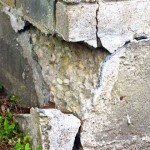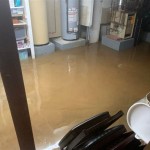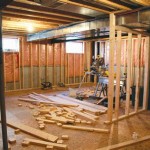Do You Need A Permit To Put A Bathroom In The Basement In Taiwan?
Installing a bathroom in a basement in Taiwan presents a series of regulatory considerations that must be addressed to ensure compliance with local building codes and regulations. The necessity of obtaining a permit hinges on various factors, including the scope of the plumbing work, structural alterations required, and the specific regulations enforced by the local municipality. Navigating these requirements can be complex, emphasizing the importance of thorough research and potentially consulting with professionals familiar with Taiwanese building regulations.
The primary legal framework governing construction activities in Taiwan is the Building Act (建築法). This act establishes the general principles and requirements for building construction, alteration, and demolition. However, the specific implementation and enforcement of these regulations are largely delegated to local governments. This means that the requirements for obtaining a permit to install a bathroom in a basement can vary significantly from one municipality to another. Therefore, the first step in determining whether a permit is needed is to contact the local construction authority (工務局) in the city or county where the property is located.
Furthermore, any plumbing work, electrical installations, and structural modifications needed to add a bathroom in a basement usually fall under the purview of the building codes. The regulations surrounding plumbing are especially important given water tightness considerations and proper drainage to avoid issues with dampness and flooding. The regulations require that water pipes are properly installed, that water is properly sealed, that they comply with set standards, and that the drainage has proper slope and connection so that water does not pool and cause problems. Failure to comply can lead to structural damage to the house, and problems with other people on the property if the situation is particularly bad.
Key Considerations Requiring a Permit
Several aspects of adding a bathroom in a basement are highly likely to trigger the need for a building permit. These aspects typically involve alterations to existing building infrastructure or the addition of new systems.
Firstly, any alterations to the structural elements of the building generally require a permit. This includes modifications to the foundation, load-bearing walls, or floor slabs. Integrating plumbing systems often necessitates cutting into the concrete floor to install drain pipes and water lines. This alteration to the existing structural elements would typically require careful design and review to ensure the structural integrity of the building remains intact. A structural engineer's assessment and approval may be required to demonstrate that the proposed modifications will not compromise the building's stability. Submitting the structural assessment with the permit application often speeds up the process.
Secondly, the installation of new plumbing and electrical systems almost invariably necessitates a permit. Plumbing work must adhere to strict codes to ensure proper drainage, prevent water leaks, and safeguard against contamination of the potable water supply. Electrical work must also comply with safety standards to mitigate the risk of electrical shock and fire. These systems must be designed and installed by licensed professionals, and the installation must be inspected to ensure it meets the standards. Failure to secure a permit for plumbing and electrical work could result in fines, legal action, and the potential for dangerous safety hazards.
Thirdly, the addition of ventilation systems can also trigger permit requirements, especially in basements where natural ventilation may be limited. Proper ventilation is essential to remove moisture and prevent the growth of mold and mildew. The installation of exhaust fans or other ventilation equipment must comply with building codes to ensure adequate airflow and prevent the introduction of harmful substances into the building. The specific requirements for ventilation will likely depend on the size of the bathroom and the local building codes.
Factors Determining Permit Necessity
Whether or not a permit is required by the local government largely depends on the nature of the work, and its effect on the structure of the rest of the building. If the basement has existing plumbing and electrical connections that are being used, then the changes might need a simpler permit, or no permit at all. Connecting to existing utility lines is often simpler and less regulated than installing new ones. The overall size of the new bathroom will also influence whether or not a permit is required. Smaller projects may be exempt from certain permitting requirements. However, the determination can only be made by the local government.
The purpose of the building also affects whether or not a permit is required. The property’s zoning classification and use designation plays a role. Residential properties have different requirements from commercial or industrial properties. If the use of the basement bathroom significantly expands the functionality of the building (e.g., adding a self-contained apartment), it might trigger more stringent permitting requirements. Furthermore, environmental considerations are considered by the local municipality. Concerns about drainage, waste disposal, and potential contamination of the environment might influence permitting decisions. Projects located in environmentally sensitive areas might be subject to additional scrutiny and regulations.
It is also important to note that even if a permit is not strictly required, certain aspects of the project may still need to comply with building codes. For example, electrical work should be performed by a licensed electrician to ensure safety, regardless of whether a permit is required. Ignoring these requirements can lead to safety hazards and potential liability issues.
Consequences of Non-Compliance
Undertaking construction work without the necessary permits in Taiwan can lead to a variety of negative consequences. These consequences can range from financial penalties to legal action, potentially disrupting the entire project and creating long-term problems.
One of the most common consequences is the imposition of fines. Local authorities can levy fines for unpermitted construction work, and the amount of the fine can vary depending on the severity of the violation. The fines may be assessed on a daily or monthly basis until the violation is rectified. In addition to fines, authorities may issue a stop-work order, halting the construction project until the necessary permits are obtained. This can result in significant delays and cost overruns.
In more serious cases, unpermitted construction work can lead to legal action. The local authorities may file a lawsuit against the property owner, seeking an injunction to prevent further construction or to require the demolition of the unpermitted work. This can be a costly and time-consuming process, and the property owner may be required to pay legal fees and other expenses. Furthermore, unpermitted construction work can create problems when selling the property. Prospective buyers may be unwilling to purchase a property with unpermitted work, as it could create legal and financial liabilities for them.
Beyond the immediate legal and financial consequences, unpermitted construction work can also pose safety risks. Unpermitted work may not comply with building codes and safety standards, potentially endangering the occupants of the building and the surrounding community. For example, improperly installed electrical wiring can create a fire hazard, while faulty plumbing can lead to water damage and mold growth. These safety risks can result in injuries, property damage, and even death.
In addition to these direct consequences, unpermitted construction work can also have indirect effects on property values. Unpermitted work may not be properly insured, leaving the property owner vulnerable to financial losses in the event of an accident or disaster. Moreover, unpermitted work can create a negative perception of the property, potentially reducing its market value. For all of these reasons, it is always advisable to obtain the necessary permits before undertaking any construction work in Taiwan.
In summary, determining whether a permit is required to add a bathroom in a basement in Taiwan requires a thorough understanding of local building codes and regulations. Consulting with the local construction authority and engaging licensed professionals can help ensure compliance and prevent potential problems.

What Is A Sump Pump And How Does It Work Fresh Water Systems

Trullbrook Master Bath Reveal Sarah Sherman Samuel

Tripletrees Apartment At Saigon Central Rivergate Residence District 4 Ho Chi Minh City Updated Prices 2025

York Hotel Taipei Updated Prices 2025

Table Of Contents Enter Academia Sinica

York Hotel Taipei Updated Prices 2025

424 B 4

How Much Does Shower Installation Cost Forbes Home

Hanns Summer Taipei Hotel Reviews Rooms Prices Hotels Com

Guide Hotel Taipei Ntu 2025 Updated Prices Deals







